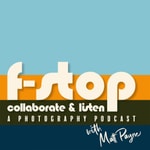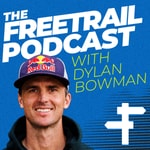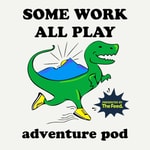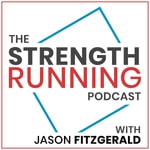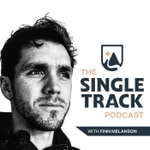Free Outside – Details, episodes & analysis
Podcast details
Technical and general information from the podcast's RSS feed.

Free Outside
Jeff Garmire
Frequency: 1 episode/3d. Total Eps: 131

Recent rankings
Latest chart positions across Apple Podcasts and Spotify rankings.
Apple Podcasts
🇺🇸 USA - running
04/08/2025#43🇨🇦 Canada - running
03/08/2025#95🇺🇸 USA - running
03/08/2025#46🇨🇦 Canada - running
02/08/2025#93🇺🇸 USA - running
02/08/2025#69🇨🇦 Canada - running
01/08/2025#76🇩🇪 Germany - running
01/08/2025#99🇺🇸 USA - running
01/08/2025#76🇨🇦 Canada - running
31/07/2025#70🇩🇪 Germany - running
31/07/2025#94
Spotify
No recent rankings available
Shared links between episodes and podcasts
Links found in episode descriptions and other podcasts that share them.
See allRSS feed quality and score
Technical evaluation of the podcast's RSS feed quality and structure.
See allScore global : 43%
Publication history
Monthly episode publishing history over the past years.
FAIL at Wasatch 100, When I couldn't trust my body
lundi 9 septembre 2024 • Duration 37:03
I want to share the story of my experience at the Wasatch 100 race, where I ultimately had to DNF due to both physical and mental health issues. Leading up to the race, I faced several challenges, including a friend dropping out as my pacer and feeling sick beforehand. During the race, I battled a high heart rate, breathing difficulties, and intense headaches. Despite my efforts to stay positive and adjust my goals, my condition continued to worsen, and I eventually experienced panic attacks and vomiting. In the end, I made the tough decision to DNF at mile 56. It's disappointing, but I'm reflecting on the importance of trusting my body again.
takeaways
- Physical and mental health issues can greatly impact performance in endurance races.
- It's important to listen to your body and make adjustments to your goals and strategies when necessary.
- Sometimes, despite your best efforts, it's necessary to make the difficult decision to DNF for your own safety.
- Experiencing a DNF can be emotionally challenging and may require time to process and recover.
- Trusting your body again after a disappointing race can be a difficult but necessary step in moving forward.
Sound Bites
- "Well, shit. Wasatch 100, the story of when I didn't trust my body anymore and my first DNF. Let's get into it."
- "So on the you have to fill out a form to DNF. I filled that out and it said, why are you DNFing? And I just put broken."
- "Okay, well I seem to be needing to find some more confidence, but I'm gonna do a stage race in two weeks because I'm signed up for one. And then at the end of October, I'm gonna do Havelina 100. So we'll try another 100 miler. But wow, did not think it would DNF this race. I thought I could."
Chapters
00:00 Introduction: The Wasatch 100 and the First DNF
03:00 The First Signs of Trouble: Bathroom Issues and a Bad Attitude
05:02 Managing the Pace and Heart Rate on the Course
08:00 Struggling with Headaches, Breathing, and Heart Rate
13:32 Continuing with the Race: Topical Cooling and Adjusting Strategies
16:19 Worsening Symptoms and the Decision to DNF
29:34 Seeking Medical Help and Reflecting on the Experience
36:38 Looking Ahead: Recovering and Moving Forward
How to Run 100 miles, with Joe Corcione
vendredi 6 septembre 2024 • Duration 01:13:35
I am racing Wasatch 100 miler, so in this episode, I sit down with Joe Corcione to dive deep into the mindset and strategies that go into running a 100-mile race. We talk about the importance of finishing, even when things don't go as planned, because it's in those tough moments that we build resilience and belief in ourselves. Joe and I cover everything from pre-race prep—like resting the mind and setting intentions—to the race itself, where pacing and celebrating small wins become key. Sign up for our Race! Montana Meltdown on October 12th We also get into the mental game of ultra running, discussing how to embrace the inevitable pain and unknowns. It's all about accepting the pain as part of the journey and using it as fuel to keep moving forward. We highlight the power of having a strong "why" to push through those tough stages, especially during the night when things get primal and instinctual. And, of course, we talk about the importance of reflecting and celebrating after the race. Joe shares his process of breaking down what went well and what didn't, while I talk about my own post-race routine of sitting in silence and mentally reviewing the race. Joe opens up about his transformation from an unathletic partygoer to a dedicated ultra runner and coach, and I share a bit about my journey from a lucrative career to pursuing my passion for the outdoors. We wrap up by discussing the importance of exploring different activities to find what truly lights you up and then building that passion over time. Whether you're an experienced ultra runner or just curious about the mindset behind these incredible feats, this episode is packed with insights and inspiration. Joe Corcione: Podcast, Instagram takeaways -Finishing a race, even when it doesn't go as planned, builds resilience and belief in oneself. -Resting the mind and setting intentions before a race can help maintain focus and reduce anxiety. -Pacing oneself and celebrating small wins along the way can provide motivation and boost morale. -Having a positive mindset and embracing the challenges and pain of a long-distance race is crucial for success. -Having a strong why can help push through the mental and emotional challenges in the later stages of a race. -Tap into the primal, instinctual energy during the night phase of a race. -Taking time off and mentally preparing before jumping into the next race is crucial for overall well-being and performance. -Finding your passion is not about simply discovering it, but rather building it over time by trying out different activities and interests. -Personal growth and transformation are possible at any age, and it's never too late to pursue your passions. -Believing in yourself and having the willingness to learn and put in the work are key factors in achieving your goals and finding fulfillment in life. Sound Bites "I think there's such value in finishing a race, even when it doesn't go your way, because it just solidifies a belief." "Accepting the pain with open arms and running with it as if it's a pacer for you." "Remembering that you have conquered the unknown in the past gives you confidence to push through." "Using the night as a cue to tap into the primal, instinctual energy and remove yourself from human needs." Chapters 00:00 Introduction and Mutual Appreciation 04:29 Demystifying the 100-Miler 05:16 Pre-Race Preparation: Resting the Mind and Setting Intentions 10:01 Race Morning and Start: Pacing and Managing Expectations 21:34 Mid-Race Challenges: Embracing Fatigue and Discomfort 24:20 Embracing the Pain and Unknown 32:30 Tapping into Primal Energy During the Night Phase 41:06 The Power of a Strong Why 48:36 Remembering and Celebrating Accomplishments 49:01 Reflection and Celebration After a Race 52:34 Joe's Personal Journey 56:12 Jeff's Journey 01:00:50 Finding Your Passion 01:09:14 Believing in Yourself and Embracing Personal Growth
Hitchhiking, The Olympics, and The Lost Princess Anastasia
lundi 5 août 2024 • Duration 25:31
In this episode, I share some of my hitchhiking stories, including a memorable ride with a woman who claimed to be a descendant of the lost princess Anastasia. I also talk about my experiences hiking the Ouachita Trail and the Ozark Highland Trail, as well as my coaching and upcoming race. I reflect on the importance of taking risks and going after goals, even if they don't always work out.
Sound Bites
- "Let's get into some hitchhiking stories."
- "Fast and wrong is still fast."
Takeaways
- Taking risks and going after goals is important, even if they don't always work out.
- Hitchhiking can lead to unique and memorable experiences.
- Jeff has a passion for coaching and helping others achieve their goals.
- He is preparing for the Wasatch 100 race.
- Jeff enjoys sharing his adventures and stories with his audience.
Chapters
00:00 Memorable Hitchhiking Stories
09:38 Hiking the Ouachita Trail and Ozark Highland Trail
13:08 The Importance of Taking Risks
16:15 Passion for Coaching and Helping Others
17:19 Preparing for the Wasatch 100 Race
23:14 Sharing Adventures and Stories
Keywords: hitchhiking, stories, Ouachita Trail, Ozark Highland Trail, coaching, race, taking risks
Setting the Record on the Oregon Coast Trail and Running Houda Trail with Jameson Collins
vendredi 2 août 2024 • Duration 51:42
Jameson Collins set the supported FKT on the Oregon Coast Trail, a 450-mile trail, in six and a half days. We talked to him about how the record went, how he hallucinated, and why he wore two different watches. The Oregon Coast Trail consists of running on flat white beaches, crossing inlets, and timing tides correctly. Collins had to adjust his plans due to unforeseen circumstances, such as missing tide windows and strong headwinds. He experienced hallucinations but pushed through and had a strong finish. Despite setbacks, Collins successfully completed the trail and set a new record.
We also discuss Jameson's passion for outdoor clothing and his company, Houda Trail, which specializes in custom-made apparel using Polartek Alpha Direct fabric.
We also mention the rumor of a 200-mile race coming to the Wasatch near Salt Lake City.
Takeaways
Jameson Collins set the supported FKT on the Oregon Coast Trail in six and a half days.
He faced challenges such as missed tide windows and strong headwinds.
Collins experienced hallucinations but persevered and had a strong finish.
Sound Bites
"Why did you wear two different watches on the trail?"
"I wore a second one just so I have two tracks run it basically because I didn't have any other way to record it."
"The record seemed like pretty soft to me. It was like seven days, 17 hours or something. And I was like, I don't know, that seems like pretty doable."
"I was like, we got to get there to where he camped when he leaves. then me and him are basically racing. I'm racing his ghost of the finish line, you know, and we made it to where he camped at the time he left that morning. And I was like, I got I think I could do this faster than him. I just have to do this faster than him. Totally."
"We should be able to get that, you know, we should be able to get it for sure. It might be close, but like, we'll get it. Yeah. Okay. So then now through the final miles, are you just like ecstatic or are you just trying to hold on or where's your head out after being out there six plus days? Um, it was, no, it was like pretty, it was pretty good. It was, I wasn't like in, I mean, I was in pretty rough shape until we got to Brookings and then"
"Yeah, totally. No, I looked pretty rough. Like people were concerned about me. Like when I was coming through town for sure, I couldn't. Thomas was really I couldn't like figure out what traffic was doing anymore. Just kind of try to run out into the middle like cross, you know, crosswalks and stuff. And he was doing a really good job at like letting me know and actually like stopping traffic and stuff for me. But like I felt like I really had it together, but I probably didn't. Yeah, totally."
Chapters
00:00 Introduction and Rumor of a 200-Mile Race
01:25 Introduction to Jameson Collins and the Oregon Coast Trail FKT
03:22 Wearing Two Watches for Redundancy
06:42 Choosing the Oregon Coast Trail for the FKT Attempt
14:40 Challenges and Adjustments on the Trail
23:00 Perseverance and Strong Finish
27:10 Racing against a ghost
28:02 Final miles and physical condition
29:24 Concerns and physical toll
30:42 Physical effects of the race
32:30 Stats of the Oregon Coast Trail FKT
34:38 Unlocking new possibilities
35:31 Accidental entry into the world of trail running
36:25 Discovering Alpha Direct fabric
37:35 Starting Whoa Trail
46:48 Upcoming races and future plans
50:30 Continuing with solo episodes and guest interview
Keywords
Oregon Coast Trail, FKT, supported FKT, trail running, tides, pack rafting, hallucinations, record, Jeff Garmire, FKT, Oregon Coast Trail, challenges, sleep deprivation, physical discomfort, confidence, long-distance races, Whoa Trail, outdoor clothing, Polartek Alpha Direct fabric, upcoming races, pushing limits
Short and Fast, the Other Side of Trail Running with Morgan Elliot
lundi 29 juillet 2024 • Duration 56:44
I interview Morgan Elliott, a runner specializing in short and fast races. We discuss the mindset of redlining during a race and how to determine if it's going to be a good day. We also talk about vertical kilometers (VKs) and the intense physical and mental challenges they present. Morgan shares his experience of representing the USA in international races and the camaraderie among team members. We also touch on the topic of DNFs (Did Not Finish) and the different motivations behind dropping out of a race.
In this conversation, Morgan discusses his experience racing in Europe, his training strategies, and his favorite distances and types of running. He talks about the camaraderie and strategy involved in team races, the importance of recovery and preventing injuries, and the thrill of racing in challenging conditions.
Takeaways
Redlining during a race means pushing yourself to the limit and knowing that you have to give it your all from the start.
In VK races, the first few minutes are crucial, and it's important to pace yourself and not go out too hard.
Representing your country in international races is a special experience, and it's important to give it your best and be proud of wearing the national team uniform.
DNFs (Did Not Finish) are a personal decision, and while some athletes drop out due to injuries or financial considerations, others choose to push through and finish the race.
The camaraderie among runners, whether in the front or back of the pack, is inspiring and creates a sense of community in the sport. Racing in Europe offers a unique atmosphere with enthusiastic spectators and low-key but talented competitors.
Camaraderie and strategy play a significant role in team races, while individual strategies are more common in shorter races.
Recovery and injury prevention are crucial in maintaining a consistent training schedule.
Racing in challenging conditions can be both thrilling and advantageous, as it can unsettle competitors and provide a mental edge.
Morgan's favorite distances are three to five hours, and he enjoys technical trails with difficult footing.
He is attracted to races with steep climbs and enjoys the challenge of using his hands during the run.
Morgan's favorite races include Zagama and Transvulcania, which offer diverse terrain and unique cultural experiences.
He is always learning and adapting his training approach, and he plans to focus on shorter races in the upcoming year.
Training includes interval workouts, such as tough hill days, to improve his speed and endurance.
He embraces the opportunity to race against top competitors and believes in learning from every race experience.
Goals for the future include participating in the Skyrunning World Series and completing a 120-mile loop in Summit County, Colorado.
Sound Bites
"Race when you have a full deck."
"You're redlining from minute 10."
"If you don't go out four minute miles, you're not going to be in the frame."
"There are so many low-key badasses that show up to European races."
"I love it when people are like looking at the weather and like, oh man, it's going to rain during a race. I'm like, yes. Anything that can get in the heads of my competitors."
"I did a lot of Hill workouts. I call them tough Hill days and they are mean."
Chapters
00:00 Introduction and Redlining
02:18 The Challenge of Vertical Kilometers
04:13 Race Strategy and Going Out Too Hard
09:04 Representing Your Country in International Races
16:40 The Decision to DNF: Personal Choices
19:36 The Camaraderie Among Runners
28:14 Racing in Europe: Enthusiastic Spectators and Low-Key Competitors
29:12 Camaraderie and Strategy in Team Races
30:05 Recovery and Injury Prevention in Training
31:03 Thriving in Challenging Conditions
39:18 Favorite Distances and Types of Running
41:43 Favorite Races: Zagama and Transvulcania
45:36 Adapting Training Approaches and Goals
48:27 Interval Workouts: Tough Hill Days
55:14 Embracing Competition and Learning from Every Race
56:12 Future Goals: Skyrunning World Series and Summit County Loop
Keywords
running, redlining, race strategy, vertical kilometers, representing your country, DNFs, racing, Europe, training, camaraderie, strategy, recovery, injuries, challenging conditions, favorite races, goals
Failing Epically at the Tahoe Rim Trail FKT
vendredi 26 juillet 2024 • Duration 38:35
Sign up for our race: https://ultrasignup.com/register.aspx?eid=17896
I’m here to share the story of my latest adventure on the Tahoe Rim Trail. Just 12 hours after a self-extraction from my FKT attempt, I’m ready to give you an unfiltered, behind-the-scenes look at what went wrong and why. From gut-wrenching nausea to a busted running pack and even a yellow jacket sting, this attempt turned into a comedy of errors.
I’ll take you through the highs and lows, the unexpected challenges, and what it’s like to push your limits, even when the odds are stacked against you.
I’ll share the details of my preparation, my strategy, and the moment-to-moment experiences that defined this journey. Despite the setbacks, this attempt was a powerful reminder of why I love the challenge and adventure of FKTs.
Whether you're an ultrarunner, a thru-hiker, or someone who loves a good adventure story, this episode has something for you. Tune in to hear about the grit, determination, and sometimes sheer stubbornness it takes to go after the fastest known time.
Listen, subscribe, and leave a review if you enjoyed this episode. And remember, take those big swings and go for the hard things – it’s always worth it. Stay elite, my friends!
Takeaways
Taking on challenging endeavors involves risks and the possibility of failure.
Even when faced with setbacks and obstacles, it's important to keep pushing forward and try to find solutions.
Sometimes, despite our best efforts, things don't go as planned and we have to accept the outcome.
Failure should not discourage us from taking future risks and pursuing new adventures.
Sound Bites
"Let's get into the attempt."
"Sometimes things happen. You're going for literally the fastest time ever. So gotta take risks."
"Sometimes things happen. You're going for literally the fastest time ever. So gotta take risks."
Chapters
00:00 Introduction and Background
02:14 The Attempt Begins
09:11 Stomach Issues and Setbacks
17:27 Pack Failure and Despair
28:29 Reflecting on Failure and Lessons Learned
37:10 Conclusion and Encouragement
Keywords
Tahoe Rim Trail, FKT, fastest known time, pack failure, challenges, disappointment, risk-taking
Montana Meltdown Race, Scummy, and an FKT attempt upcoming
lundi 22 juillet 2024 • Duration 27:51
Sign up for our race! https://ultrasignup.com/register.aspx?did=117574
In this episode, we discuss the Montana Meltdown and the benefits of fixed-time races. I also share my experience participating in the Scummy Summer Slammer event and my preparation for the Tahoe Rim Trail FKT attempt. I discuss the importance of emotional connection in race planning and FKTs and share my unique approach to race planning.
Takeaways
- Fixed time races unlock mileage and build confidence in athletes.
- The Scummy Summer Slammer event is a grassroots, low-cost run from Bozeman to Yellowstone.
- Emotional connection is important in planning races and FKT attempts.
- Jeff's unique approach to race planning involves starting with the 'why' and then focusing on the 'how'.
- Jeff is preparing for the Tahoe Rim Trail FKT attempt and is looking forward to the adventure and pushing his body.
- Jeff's Unique Approach to Race Planning
- Preparing for the Tahoe Rim Trail FKT Attempt
Sound Bites
- "Fixed time races unlock mileage and build confidence."
- "The Scummy Summer Slammer: A grassroots, low-cost run from Bozeman to Yellowstone."
- "Jeff's unique approach to race planning: starting with the 'why' and then focusing on the 'how'."
Chapters
00:00 Introduction and Sponsor Announcement
01:28 The Benefits of Fixed Time Races
07:09 Scummy Summer Slammer: A Grassroots Event
08:36 Preparing for the Tahoe Rim Trail FKT
19:15 Challenges and Goals for the FKT Attempt
25:23 Building a Strong Community with Free Outside Races
Keywords
race organizing, fixed time races, Montana Meltdown, Scummy Summer Slammer, Tahoe Rim Trail, FKT, emotional connection, race planning
Huge News and Mika Thewes! We are talking 200 mile races and a new event
vendredi 19 juillet 2024 • Duration 53:26
We have started a race! Sign up for the Montana Meltdown, the premiere new fixed time race in Bozeman, Montana: https://ultrasignup.com/register.aspx?did=117574
In this conversation, I interview Mika Thewes, an experienced ultrarunner who has completed multiple 200-mile races. We discuss Mika's journey into ultrarunning, her experiences in races like Bigfoot and Tahoe, and her recovery from the Cocodona 250. Mika shares her low-tech approach to race planning and her focus on time goals rather than competition. We Talk some volunteering and race scheduling.
Follow Mika on Instagram: https://www.instagram.com/sugarcrashvegan
Takeaways
Mika Thewes is an experienced ultrarunner who has completed multiple 200-mile races.
She got into running to get in shape and gradually transitioned to trail running and longer distances.
Mika's favorite races include Tahoe and Bigfoot, but each race has its own unique challenges and beauty.
She takes a low-tech approach to race planning, using handwritten sheets of paper to track aid stations and estimated times.
Mika focuses on time goals rather than competition, racing against herself and pushing her limits.
We talk about the challenges faced during races and goals for future races.
Mika Thewes explains how he manages to afford his racing through volunteering.
The conversation ends with a discussion about Mika's upcoming race, Tor des Géants in Italy.
Animal Encounters and Volunteering
Sound Bites
"That stupid powerline switchback climb out of like, what was it, Blackpool or something? That was the worst."
"I just decided to double the distance. I think I had run like eight miles of trails before I did a 50 mile trail race, like in total in my life."
"It was the craziest like I could talk about that all day. I mean, spot-trackers were optional so a bunch of people weren't wearing them. People got food poisoning at the aid stations."
"It is what it is. It was disappointing."
"I mean, I understand everyone's concerned, because like obviously I'd be concerned about that too."
"Yeah, that's hilarious. I mean, you were flying down from Elden."
Chapters
00:00 Introduction and Race Announcement
01:08 Mika: A 200-Mile Expert
06:37 Getting Into Ultrarunning
08:34 Transitioning to Trails and Longer Distances
10:03 The Gnarly Challenges of Bigfoot and Tahoe
13:49 Dreams and Future Challenges
17:13 Recovery and Racing Tahoe 200
21:07 Racing Against Time and Overcoming Challenges
26:19 Challenges and Goals in Recent Races
35:36 Animal Encounters and Volunteering
47:47 Upcoming Race: Tor des Géants
Keywords
ultrarunning, 200-mile races, Bigfoot, Tahoe, Cocodona, race planning, time goals, determination, ultrarunning, races, challenges, goals, animal encounters, volunteering, Torre dei Giants
Crazy Animal Encounters with Grizzly, Moose, Goats, Coyotes, and Mountain Lions
lundi 15 juillet 2024 • Duration 29:27
Buy a Make America Eclipse Again Hat: https://www.freeoutside.com/shop
In this episode, I dive into some of the wildest animal encounters I've had while hiking and camping. From a heart-pounding close encounter with a moose on the trail to the adrenaline rush of being charged by a grizzly bear, I'll take you through these intense moments. I'll also share my run-ins with territorial goats and a funny story about a mischievous mouse that found its way into my tent. And if that wasn't enough, I'll recount a bizarre interaction with some drunk individuals while camping. Join me as I highlight the unpredictable and exciting experiences that come with encountering wildlife in the great outdoors.
Takeaways
- Wildlife encounters can be unpredictable and exciting while hiking and camping.
- It's important to be aware of the behavior and characteristics of different animals to stay safe.
- Territorial animals like moose and goats can be aggressive if they feel threatened.
- Proper food storage is essential to avoid attracting wildlife to your campsite.
- Interactions with humans in remote areas can be unpredictable and sometimes uncomfortable.
Sound Bites
- "I was literally charged by the moose."
- "I thought I was gonna get killed by a grizzly bear."
- "Territorial goats just like running at me."
Keywords animal encounters, hiking, camping, moose, grizzly bear, goats, mouse, wildlife
Everything About Outdoor and Backpacking Content Creation and YouTubing with Devin Ashby
vendredi 12 juillet 2024 • Duration 49:39
Devin Ashby is a full-time YouTube creator in the backpacking and camping space.
Check out his YouTube Channel: https://www.youtube.com/channel/UCVyZtccA-oMchXHai-CJyPA
His Instagram: https://www.instagram.com/backcountryexposure/?hl=en
And His Etsy Shop: http://BACKCOUNTRYEXPOSURE.Etsy.com
He makes videos reviewing backpacking gear, camping gear, and trip videos. Devin started his YouTube channel in 2014 and has developed a system for creating videos efficiently. He also runs a shop selling bags that he makes. Devin discusses the challenges of filming in public spaces and how he handles interruptions from passersby. He emphasizes the importance of spending time with gear in the field before reviewing it and providing an authentic experience for viewers. Devin also talks about the balance between giving honest reviews and maintaining relationships with brands.
In this conversation, Devin and Jeff discuss the challenges and complexities of being an outdoor gear reviewer and content creator. They touch on topics such as the impact of free gear on the industry, the evolving landscape of media and influencer marketing, and the various revenue streams for content creators. Devin also shares insights on teaching backpacking and offers advice for aspiring outdoor content creators.
Takeaways
Devin Ashby is a full-time YouTube creator in the backpacking and camping space, making videos reviewing gear and sharing trip experiences.
He started his YouTube channel in 2014 and has developed a system for efficiently creating videos.
Devin emphasizes the importance of spending time with gear in the field before reviewing it and providing an authentic experience for viewers.
He discusses the challenges of filming in public spaces and handling interruptions from passersby.
Devin talks about the balance between giving honest reviews and maintaining relationships with brands. The prevalence of free gear in the outdoor industry can devalue the work of content creators and make it harder for the industry as a whole.
The compensation for content creators on platforms like YouTube is often based on the number of views, which can undervalue their time and expertise.
When balancing brand deals and product reviews, it's important to be transparent with the audience and establish boundaries.
Teaching someone to backpack involves trip planning, understanding gear requirements, and packing efficiently.
Consistency, authenticity, and enjoying the process are key to success as an outdoor content creator.
Subscribers and views don't necessarily determine success; it's possible to have a fulfilling and successful content creation journey with a smaller audience.
Sound Bites
"I make videos for YouTube in the backpacking and camping space."
"I also sew on the side if you want to."
"You're filming YouTube on a Wednesday morning? Shouldn't you be at work?"
"This gear is payment thing... doesn't pay money."
"We're still in the infancy of where the type of media... is so prevalent."
"Compensation is so focused on the number of views."
Chapters
00:00 Introduction and Devin's YouTube Channel
02:42 Devin's Multiple Income Streams
06:14 Transitioning from Climbing to YouTube
10:13 Approach to Gear Reviews
12:24 Challenges of Filming in Public Spaces
19:14 Balancing Authenticity and Brand Relationships
25:42 The Impact of Free Gear
32:24 Revenue Streams for YouTube Reviews
37:01 Managing Reviewed Products
39:11 Teaching Backpacking
43:19 Favorite Backpacking Locations in Utah
46:03 Advice for Outdoor Content Creators
Keywords
YouTube, backpacking, camping, gear reviews, video production, public filming, authenticity, brand relationships, outdoor gear, gear reviewer, content creator, influencer marketing, revenue streams, backpacking, teaching, advice
